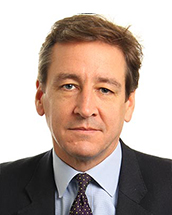How covid-19 changed SWFs’ world: Preqin
Sovereign Wealth Funds are embracing more active roles in domestic economies and sustainability while building on relationships with the private capital industry, according to research by Preqin and Baker McKenzie.
A study, ‘Sovereign Wealth Funds in Motion’, was published last week (June 2) by alternative assets data provider Preqin, in partnership with global law firm Baker McKenzie.
The prominence of sovereign wealth funds (SWFs) in the global financial system is rising as their size enables them to take bigger and countercyclical positions across individual assets and asset classes.
They boasted assets under management of US$7.84 trillion (A$9.7 trillion) at the end of 2020, equal to roughly 7 per cent of the estimate of all managed investments (US$111.2 trillion), according to the report. SWF asset growth has averaged 8 per cent a year since the end of 2011.
The report says: “With economies having suffered unprecedented slumps due to covid-19, SWFs are becoming tools of reconstruction, with many investing domestically – often with the aim of delivering large-scale infrastructure projects, domestic regeneration, and encouraging development of particular sectors.”

James Burdett, a London-based partner at Baker McKenzie and co-lead of the law firm’s ‘global sovereigns group’, said SWFs were among the most well-capitalised institutional investors globally. But beyond their money, they also had a certain character which was different from any other institutional investor. They could take a longer view and historically had allocated more to illiquid assets than their private counterparts. This had served them well, he said.
SWF investments in private equity, real estate, infrastructure and private debt funds, as well as hedge funds, have grown substantially over the past decade Cumulative SWF allocations to alternative asset classes now total more than US$700 billion. There have been particularly large increases in target allocations to private equity, real estate, and infrastructure. Their combined median targets were 18 per cent in 2011 and grew to 30 per cent in 2020.
Private equity is the most popular alternative asset class for SWFs, with a median allocation of 9.3 per cent, followed by real estate at 6.7 per cent.
The study found that there has been a growing momentum across SWFs to a more sustainable investment future. This has been propelled by a combination of internal initiatives and stakeholder pressure from within the funds and a variety of recent national and international regulatory developments.
“That said, just 19 per cent of the 98 Sovereign Wealth Funds tracked by Preqin have a formal ESG policy at present. Generally, it is the larger funds that are committed to ESG, with US$4.24 trillion (54 per cent) of the US$7.84 trillion in AUM of SWFs managed by funds that have stated policies,” the report says.
David Lowery, head of ‘research insights’ at Preqin, who is also based in London, said: “With most economies working their way through the post-covid-19 recovery phase, ESG is the means to focus on returns while delivering positive outcomes. And while many SWFs may be late adopters, they are keen to drive future prosperity and are catching up fast.”
Other highlights from the report include:
- SWFs are increasing their allocations to alternatives. Cumulative SWF allocations to private capital now exceed US$700 billion
- Cumulative allocations to hedge funds have fallen from 34 per cent in 2016 to 11 per cent in 2020, though may rebound given strong performance in 2020 and 2021 YTD
- Median target allocations to private equity, infrastructure and real estate have risen from 18 per cent in 2010 to 30 per cent in 2020
- Europe is the clear leader on ESG across alternatives as a whole, driven by EU-wide regulations. About 80 per cent of private capital assets in Europe is managed under ESG commitment, compared with 47 per cent in North America, 39 per cent in the Middle East, and just 24 per cent in Asia.
- The largest SWF in terms of both total assets and ESG-committed assets is Norway’s Government Pension Fund Global (GPFG), which accounts for US$1.1 trillion of the US$7.84 trillion currently managed by all SWFs globally.











